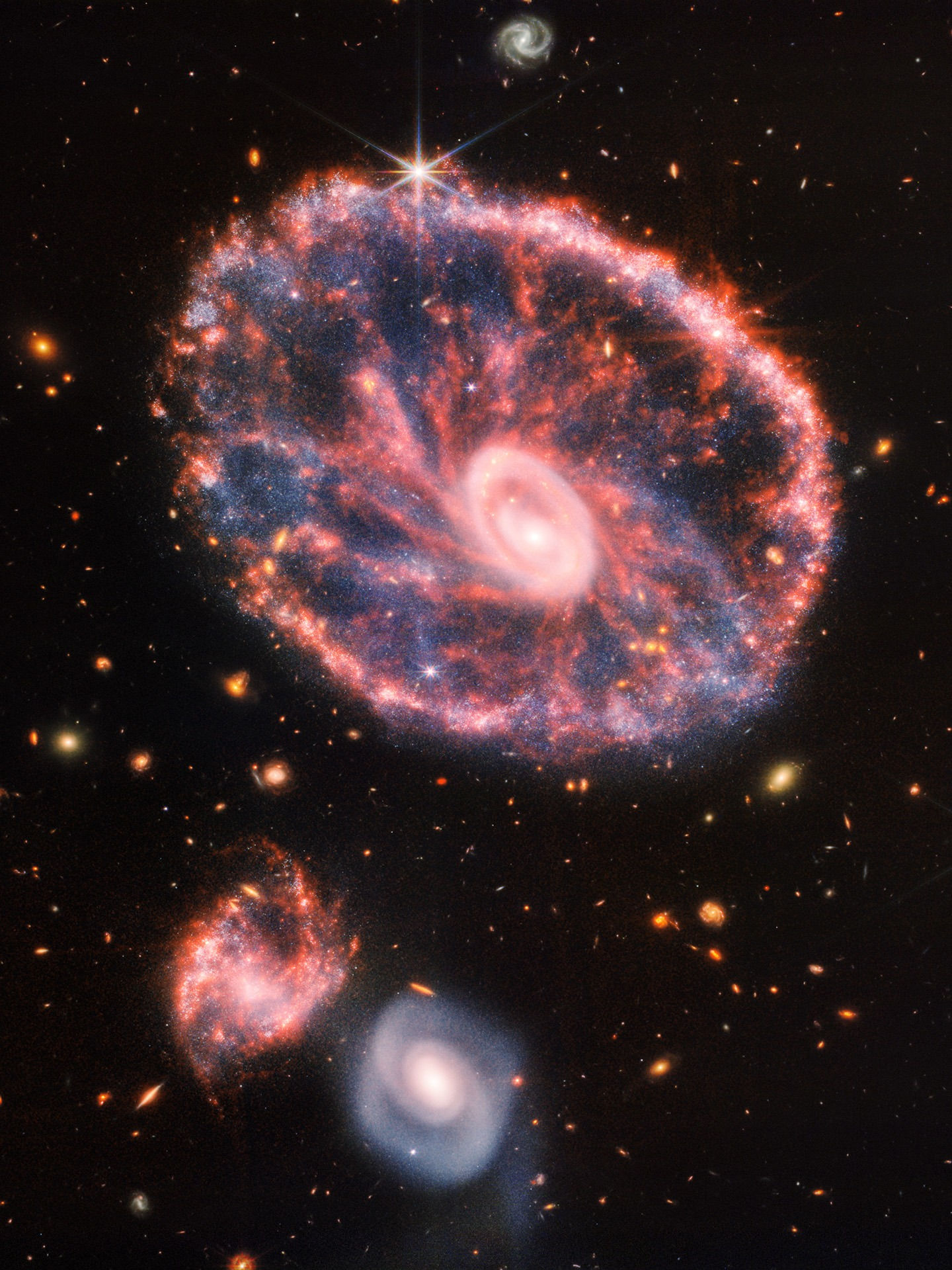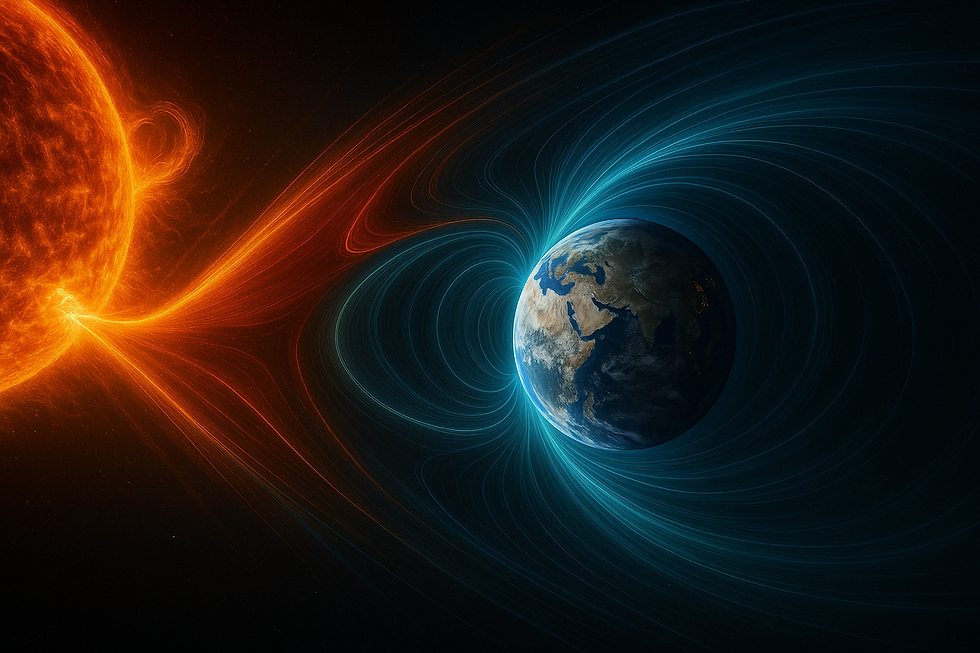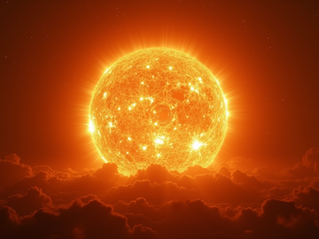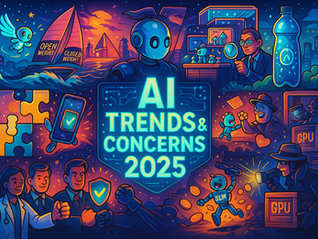Why The Theory of Poly-Infinities Debunks the Concept of Nothing? Here's why...
- UnitedEarth
- Jul 7, 2023
- 9 min read
Updated: Feb 6, 2024
As techpriests within our research group, we have formulated a new idea concerning the coexistence of our reality and the Big Bang, which challenges the notion of "nothing." Our idea is known as the Theory of Poly-Infinities, aiming to provide a more scientific approach than mere speculation in understanding the origin of existence. Before we start, remember.. we just built our ideas on the ideas of the greatest minds like Roger Penrose, whose ideas support our ideas, and he has a Nobel Prize in physics and mathematics. If we imagine that nothing or pure void was the default state of the beginning and always existed, which means it is infinite, then reality itself would not even bother to start to begin with, and the void would remain stable forever. Poly-infinities also prove in an indirect way that everything is possible with enough complexity, changes, and energy. Even our version of anti-entropical systems supports the idea that everything is possible.
We already have three strong direct factors and one more indirect factor that could support our claim about the rules of poly-infinities, which are based on a logical framework and observation. (Warning, Most people understand the word "meaning," which is about acting on something. Acting by itself needs energy. So my definition is the most extreme definition of meaning and the most objective. The word "meaning," by definition, essentially refers to a cosmic energy that governs matter in the universe, and the operations of that matter are based on the laws of physics. That's the most extreme universal definition of the word "meaning" at its core. Language is just a way to share information in order to make more useful operations that promote survival. (That's'she most scientific definition of what language is.)
The final result from this poly-infinities article shows that the meaning of this reality is basically infinite change, and somehow anti-entropical system mechanisms align with the mechanism of the universe, which is infinite change.
Those direct factors are:
Factor 1: The expansion of the universe itself. Infinite resizing of space is a form of infinity, and it is a direct proof of infinity, according to scientists. That data alone is enough to support my hypothesis of poly-infinities.
Factor 2: The fact that our universe has been determined to be flat provides direct evidence that space is infinite and extends indefinitely in all directions. This supports the idea of an unbounded, infinite universe. That's a direct form of infinity, and it also shows us existence has always existed, and the big bang is just a phase of existence.
Factor 3: The laws of thermodynamics, which govern energy and its interactions, indicate that pure zero is impossible in any case, and energy has always existed in some form. This notion aligns with the idea of an eternal, unending existence.
Indirect factor 4: Infinite existence is the only logical option that we should accept because you cannot have more options than that since the option of infinite nothing as the default state of existence cancels itself. If we imagine that nothing or pure void was the default state of the beginning and always existed, which means it is infinite, then reality itself would not even bother to start to begin with, and the void would remain stable like that for eternity.
In that case, Nobel Prize winner in physics Roger Penrose might be correct with his idea of infinite big bangs, as it aligns with our own ideas and they mutually support each other. Our claim of infinite existence and the theory of poly-infinities form an unbreakable logical framework without any paradoxes or errors that give scientists a strong, serious chance to use our logical framework as a playground for their new scientific ideas, as a base to build more hypotheses on it, and to research things more deeply than they ever could.
Let's talk about why we should not ignore ideas that are related to infinity. With my proposed method for testing infinities, we now have a valuable opportunity to take seriously those ideas pertaining to infinity. While the scientific method remains a fundamental approach, it is important to acknowledge that when discussing hypotheses or logical ideas involving infinity, the default scientific method may not be sufficient. My proposed idea offers an additional layer above the standard scientific method, specifically designed to address the complexities surrounding infinity.
If a scientific idea provides an explanation for something related to infinity, it should be able to withstand validity tests beyond the typical scientific method. To pass such tests, follow the scientific method of infinities: The scientific idea that is related to infinity must avoid paradoxes and provide scientific explanations that cannot be replaced or explained by other already existing scientific theories, while also ensuring that it remains immune to potential debunking attempts with logical and critical thinking.
That's a great way for scientists to seriously consider scientific ideas that are related to infinity, because infinity may not be possible to test with the typical scientific method.
(No theory is immune to logic; all I am saying is that it is extremely hard to debunk any idea that is related to infinity if it follows those rules of the scientific method of infinity.)
Let's talk about the theory of polyinfinities.
Everyone knows that death is eternal; even the universe will die in the sense that matter will no longer be able to perform useful operations at the atomic level that will enable the rise of anti-entropical systems like humans and animals. However, the idea of eternal sleep, known as death, violates the rules of the poly-infinities.
Rule of poly-infinity 1: Even if one form of infinity exists, it automatically allows and opens doors for other forms of endless infinities. Rule 2: This occurs because each new infinity is permitted by the previous form of infinity to open a door for another infinity, and the process continues endlessly. When something is infinite, its source is also infinite, because otherwise it would simply create paradoxes. Rule 3: Infinities must always be different, since all forms of infinities are equal and connected, and the idea that something is infinite that creates an eternal loop would mean that it is cancelling itself at the same time as the previous infinities too.
A singular loop, such as an infinite repetition of Big Bangs without any variation, would essentially nullify the existence of reality itself. The infinite chain of infinities is already a form of ultimate loop, and basically, that's why reality cannot generate additional loops. We call that ultimate loop a "multi-loop" because it allows other infinities to alter reality without causing paradoxes like the idea of an infinite void "before" the big bang because there is no really before with infinite existence. Singular loops that would break the infinite chain of infinities would violate the principles of the poly-infinities theory, and singular loops at this point don't even make sense to exist in the first place, like the infinite void.
It is impossible to debunk the poly-infinity rules, as they avoid paradoxes and are meant to explain the nature of infinity. The only way to debunk them would be to prove the existence of an infinite void, which was supposedly our default state of existence. The infinite void will never change and will remain stable for eternity; as a result, reality cannot exist. To debunk the poly-infinities rules, prove that in an infinite void that is stable, it can still change, and it allows our existence. It is simply an error in the logic, since the infinite void can only be stable and unchanging. Therefore, it becomes paradoxical. A pure void lacks even the fundamental laws of physics itself.
If we examine the patterns of this hypothesis, we can observe a mechanism within our reality that challenges the notion of an infinite void. This mechanism is known as "change," and we can witness its effects in the first law of thermodynamics, which helps us understand how cosmic change works and its significant role in poly-infinities. Through this lens, we can define the concepts of sameness and difference.
Let's see the final outcome of poly-infinities. Eternal sleep, known as death, does not exist because it would violate the rules of poly-infinities and continuous life known as anti-entropical systems, whose nature is change, like infinity. Survival is the only inevitable future that goes against the loop of emotions and death. The anti-entropical mechanism is imitating infinity, or simply, nature is imitating infinity, and that's great indirect evidence that it suggests life is the only eternal future since infinite death violates the rules of poly-infinities.
From now on, at this point after those serious unbreakable arguments, we're entering quite speculative waters that are not unbreakable, like the poly-infinities theory, with examples of the concept of infinite death in loop as a false idea.
We simply support the idea that "you are as old as the universe because matter can't be created or destroyed. In the deepest level, you are the universe experiencing itself." So, will we ever exist again? The answer is yes, based on poly-infinities rules. If something is infinite, then that infinite thing has to be supported by something that is also infinite, and the process continues endlessly. If limits exist, there must be something infinite to allow such barriers and limits to exist in the first place. But if we ignore the theory of poly-infinities and let non-autonomous matter, known as entropic matter or the arrow of time, win in the marathon of time, there will be severe consequences for any anti-entropic creature since the theory of poly-infinities allows a random, uncontrollable afterlife. That danger exists only when we die, and eventually even the universe itself "dies" too.
An autonomous reality, with the help of an anti-entropical universe, allows us to have a more controllable afterlife or reality, which means it allows us to become gods in our personal reality, to do whatever we want for as long as we want for an infinite amount of time because life means infinite changing and is against the rule of infinite nothingness because it violates the rules of poly-infinities. The problem arises if non-autonomous matter, known as entropic matter or the arrow of time, wins in the marathon of time that causes the end of the universe.
This creates a hypothesis known as infinite risks after the end of our universe. What are infinite risks?. It simply means that if autonomous matter, known as anti-entropic systems, fails to transform the universe into an anti-entropical system, which is basically an autonomous reality, then reality itself, after the end of the universe, will become a non-autonomous reality, and inevitably, it will resurrect humans in a completely random reality after an infinite amount of time. (Time is basically energy with algorithms; even some places with no mass at all have energy to support the existence of time.)
For example, after your death and the end of the universe, it doesn't matter how good you were; the reality itself transforms everything randomly since it is still a non-autonomous world and is not transformed into a different form of reality like an anti-entropical universe. You might appear in a reality where the laws of physics allow you to live in a reality of hell similar to the writings of the "holy Scriptures," and live in that hell for billions of years, but not forever, as that would violate the rules of the poly-infinities.
There is always an infinitely small possibility that you may appear in a reality with an ideal utopia for you. But sadly, in a non-autonomous universe, that utopian reality would not last an infinite amount of time in a controllable manner, and it could change any time to hell again. In an autonomous reality or anti-entropical universe, you will at least live in a place where the odds are not inevitably against you, even if your reality turns to hell, and it would not force you again to fight against entropy to turn your universe into an anti-entropical universe in order to save yourself. Since you would already live in an anti-entropical universe, inevitably order will prevail that supports life.
Remember, the idea of infinite risks already happened in different forms in the past, and we are already living in a random reality that lacks control from an intelligent entity in terms of our universe. By referring to intelligence, I mean that the previous universes were governed by different forms of operations, which in essence are basically the same compared to our present-day operations, known either as anti-entropic complexity or intelligence or just entropic operations in different forms. This is because the theory of poly-infinities prevents the same idea from being trapped in an infinite loop in any form of loop because infinities need to always have different variations.
According to poly-infinities, everything in reality is the same and different at the same time without violating any laws of reality, and they are just different in form.
(From now on, this is again speculation with a guess.) If the cosmic algorithms fail to correct themselves, like any powerful AI, it will restart over and over again with testing such as trial and error until it is solved, which means it will test different realities until the reality itself becomes intelligent or autonomous and finally continue its mission that allows other forms of reality to exist that are beyond our current one by following the rules of poly-infinities.
References:
If you wish to gain more information about the topic and comprehend the purpose of our team, known as CivilizationX, we kindly request that you click on the provided links, like our channel, and explore extremely hard topics like how the anti-entropical nature works and we consider life anti-entropical?
Our objective is to present universal and objective truths, opposing the concept of subjective information. Furthermore, we advocate for the view that our reality is deterministic, emphasising that a lack of information does not suggest otherwise.
This is our channel: https://www.youtube.com/@Civilisation_x/videos
Roger Penrose's new explanation about our reality and the infinite big bangs is linked here:













































































































I believe in infinity as a continuum of the unrealized universe. If we allow our definition to include many infinities we must also concur that those infinities can be sets of the cumulativeness of infinity. Therein lies the paradox of poly infinities just as we find the paradox of numerical sets when compared to the cumulative infinity of numbers. Zero, the circle, is the beginning and end of all numbers and is the infinity. All other numbers are merely observations of the infinity and we define them as reality. LB